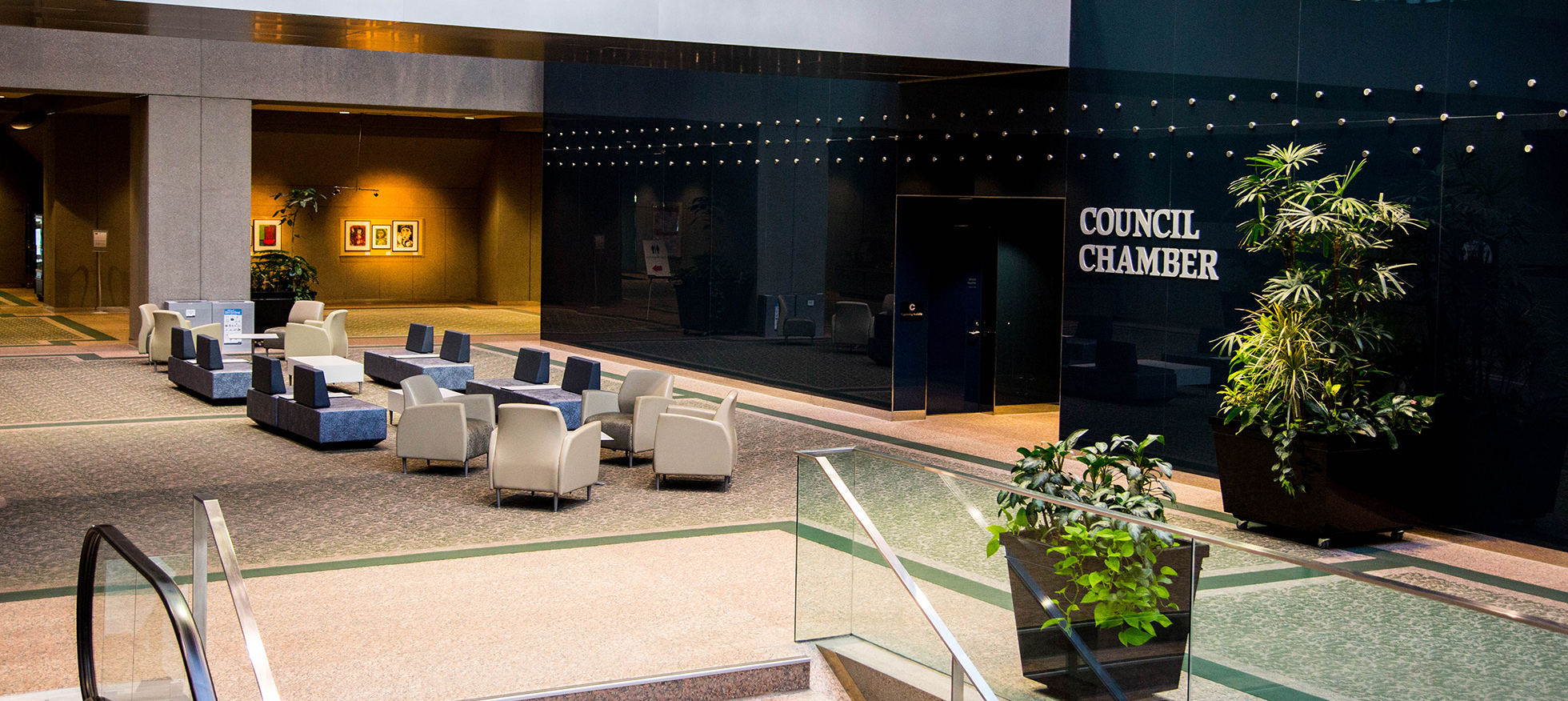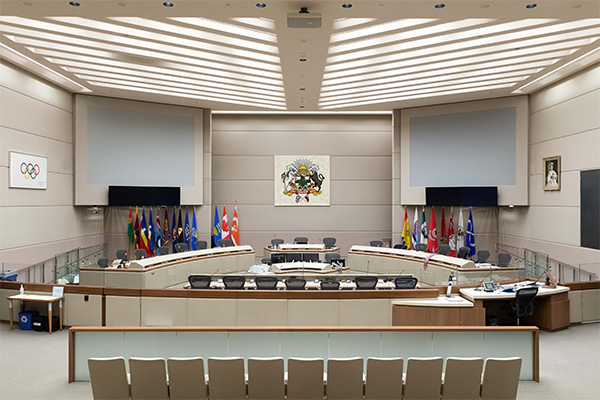Council & Committee Support plan and budget
Council & Committee Support provides the governance structures and processes by which The City of Calgary’s legislative decision-making and protocol functions are conducted.
Our customers
- Calgarians
- Council
- Mayor and Councillors
- Executive Leadership Team
- Administration
Our partners
- Mayor's office
- Vendors
- Internal business units
- Boards
- Commissions
- Committee administrative supports and chairs/vice chairs
Value to Calgarians
- transparency and public participation in the legislative process
- appropriate protocol support is provided
What we deliver
- Council and Committee meetings and their related documents (bylaws, agendas, minutes).
- Agreements and Council policies.
- Appointments to boards.
- Commissions and committees.
- Governance documents.
- Protocol activities (flag raisings, proclamations, recognitions by Council).
Budget breakdown
Operating and capital budgets explained
The budgets you see here are expenditures net of recoveries.
The City develops two budgets to create impact aligned with Council’s Strategic Direction:
- The four-year (2023-2026) operating plans and budgets
- The five-year (2023-2027+) capital plans and budgets
The operating budget includes revenues, recoveries and spending related to ongoing operations. These include:
- Salaries, wages and benefits.
- Day to day programs, maintenance and services.
- Administration costs (e.g., insurance).
- Fuel
- Utilities
- Capital financing costs.
The City's total net operating budget is zero. This means we budget to collect the revenue needed to deliver services to Calgarians — no more, no less. We collect this revenue through property taxes and other sources.
The capital budget pays for long-lived assets. These provide the foundation for the services Calgarians rely on. They include:
- Maintenance of current infrastructure (e.g., bridges, buildings and playgrounds).
- Upgrades to existing community infrastructure.
- New infrastructure to provide services in areas that are underserved (e.g., Green Line).
- New infrastructure for growing areas of the city.
Learn more about our 2023-2026 Service Plans and Budgets.
See how the budget has been adjusted since November 2022
Measuring performance
We are measuring our performance in five areas. Each value is the goal we expect to reach by 2026.

What we've heard
- The Public, Administration and Members of Council have indicated their support for continued remote participation in Council and Committee meetings.
- Participants in protocol activities have expressed satisfaction with the support provided, even as adaptations have been undertaken to reflect a remote or hybrid environment.
- Administration feedback demonstrates that Council & Committee Support is valuable and well delivered.
What we're watching
- Transparency and technology: Public expectations of greater transparency and accessibility are expected to grow, as is the need to adapt to new and changing technology. This trend continues to drive appropriate investments in meeting management technology and support for remote participation in legislative meetings.
- Event protocol: Supporting The City’s contributions to advancing Indigenous Reconciliation.
- Changing service expectations: For all sub-services in this service, there has been a trend towards increasing volume, complexity, and velocity of requests, reflecting new and evolving expectations from customers.
- Public Trust: Failing to meet these expectations may impact public trust in The City and poses a reputational risk.

Our initiatives
What we plan to do
We will continue to provide the transparent and accessible governance structures by which The City's legislative decisions are made. The service will also continue to deliver protocol and citizen recognition activities.
How we're going to get there
- Support the Mayor’s Office and City Administration on matters of protocol and citizen recognition by providing knowledgeable and expert advice.
- Maintain standards of excellence in Citizen Recognition and Protocol by ensuring related policies are up-to-date, accurate and reflect leading practices.
- Improve ease of participation in public hearings by modernizing the process to include new technology for participants to register for Public Hearings, receive reminder notifications, and access mobility supports to enhance inclusion and accessibility.
- Enhance support for users of The City’s legislative meeting management system including report writers, Mayor's Office, Councillors’ Offices and General Managers’ Offices.
- Maintain the hybrid delivery of legislative meetings by investing in technology systems, and the proactive replacement of audiovisual and technology systems that are reaching obsolescence.

